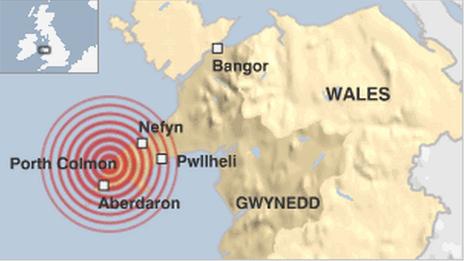Earthquake: Brynmawr, Cardiff and valleys feel tremors
- Published
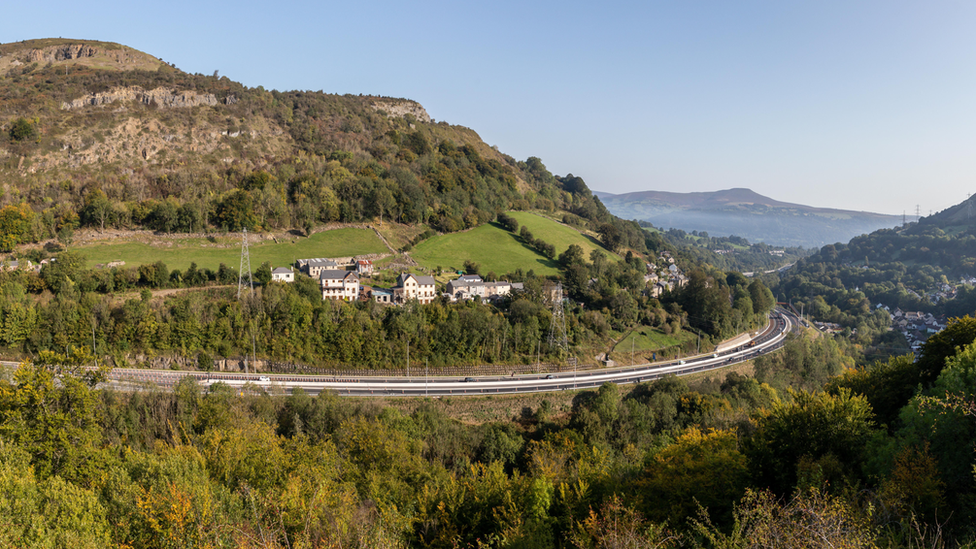
The epicentre of the earthquake was just north of Brynmawr, Blaenau Gwent
An earthquake has shaken parts of Wales, with tremors felt for 100 miles.
The British Geological Survey (BGS) said the 3.7 magnitude quake was at 23:59 GMT on Friday and was 2.2 miles (3.6 km) under the Earth's surface.
The epicentre was north of Brynmawr, Blaenau Gwent, and west of Crickhowell, Powys, but people on Twitter reported feeling it as far away as Birmingham.
Gwent Police said it received multiple calls overnight but it was "business as usual" for the force.
BBC journalist Alex Humphreys said she felt the "mini earthquake" in Cardiff, 30 miles (50km) away.
"My whole bed shook," she tweeted, external. Others described it as a "scary", external experience.
Allow X content?
This article contains content provided by X. We ask for your permission before anything is loaded, as they may be using cookies and other technologies. You may want to read X’s cookie policy, external and privacy policy, external before accepting. To view this content choose ‘accept and continue’.

Brian Baptie, BGS head of seismology, said it was the largest earthquake in south Wales since a 4.6 magnitude quake about 25 miles (40km) west, near Swansea, in February 2018.
He added that, on average, Britain only gets about one earthquake with a magnitude of 3.7 or greater each year.
The largest earthquake ever recorded in the UK, external was in the North Sea on 7 June 1931, with a magnitude of 6.1.
The epicentre was in the Dogger Bank area, 75 miles (120km) north-east of Great Yarmouth, Norfolk.
Wales' most powerful quake was on the Llyn Peninsula, Gwynedd, in 1984 - measuring 5.4, it began at a depth of more than 12 miles (20km).
The BGS said smaller quakes were not unusual in Wales, with 70 measuring more than 3.5 between 1727 and 1984.
A 5.2 magnitude earthquake in Swansea in 1906 was one of the most damaging British earthquakes of the 20th Century, with damage to chimneys and walls reported across south Wales.
In Ebbw Vale shoppers said they had been left shaken and stirred.
Gerald Davies called the moment "strange", adding: "It freaked me out a bit but I didn't realise it was an earthquake until this morning when I heard people taking about it on the buses.
"We're not used to feeling earthquakes here."
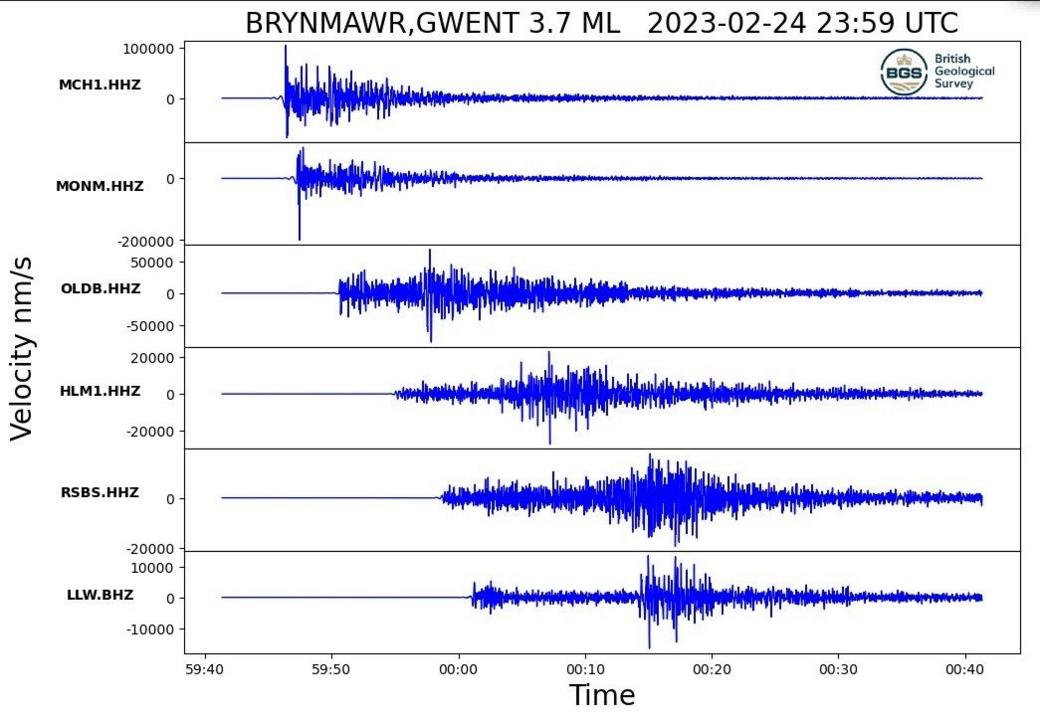
A seismograph shows the force and duration of Friday night's quake
Alison Stephens said: "I live in a house that has a cellar underneath and I thought something in the cellar had collapsed.
"But my daughter and husband were in the living room and went, 'oh my god did you hear that?'
"Then everyone was out in the street going, 'oh my God, was that an earthquake'?"
She said it was "quite a rumble".
Caroline Davies thought nothing of it until people started messaging on Saturday.
"My husband was sat on one sofa and I was sat on the other... and it just wobbled," she said.
Listeners told BBC Radio Wales Breakfast that they felt the "earth shake" in Ebbw Vale, which brought people out of their homes and into the streets.
Robert Griffiths, from Rhiwbina, Cardiff, said he had just sat down to watch TV after a night out when "all of a sudden the whole house shook".
"The ceiling creaked, we immediately turned the television off and thought 'what on Earth was that?'
"It was kind of like 20 trucks had driven in front of the house so it was most unusual and quite strange."
Stephanie Palfrey from Blackrock, near Abergavenny, said she "thought the mountain right behind the house was sliding down".
"Other villagers came out of their homes to see what the noise was," she said.
"We live in an old cottage. You could hear it rattling. It was quite something."
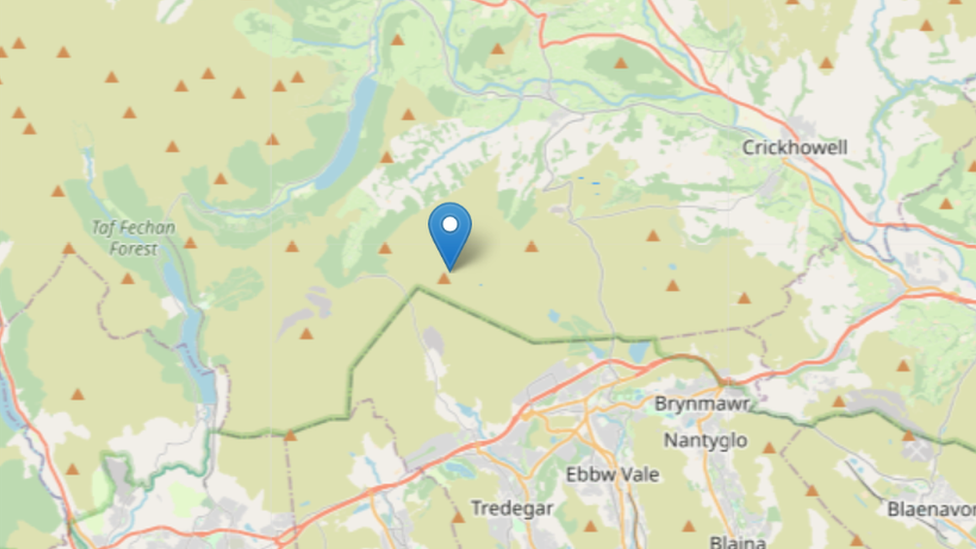
The British Geological Survey said the quake's epicentre was just north of Brynmawr and west of Crickhowell
Geoffrey Davies described an "almighty bang" at Llangattock, near Crickhowell.
"Initially we didn't know what to think. It was the sort of bang I had never heard," he added.
"When someone says 'it shook you to the core', it was that kind of feeling."
Elsewhere, Cat said she "thought we were going mad" in Blaenavon, Torfaen, as her "bed and house shook side to side".
Dr Ian Stimpson, a senior geologist at Keele University, in Newcastle-under-Lyme, Staffordshire, said such events "happen relatively infrequently" in the UK.
"They are a big shock. An earthquake of this size, probably the UK has about three of them a year on average," he said.
"These earthquakes are way smaller than the Turkish earthquake for example - that was a million times more powerful than the earthquake last night."
Other recent earthquakes in Wales were much smaller than Friday's.
The BGS reported a tremor with a magnitude of 0.9 in Llwynmawr, near Chirk, Wrexham, on 4 February, one of 1.1 at Llandybie, Carmarthenshire, on 20 January and one with a magnitude of 2 at Llanbedr, Powys, on 27 December.
- Published17 February 2018
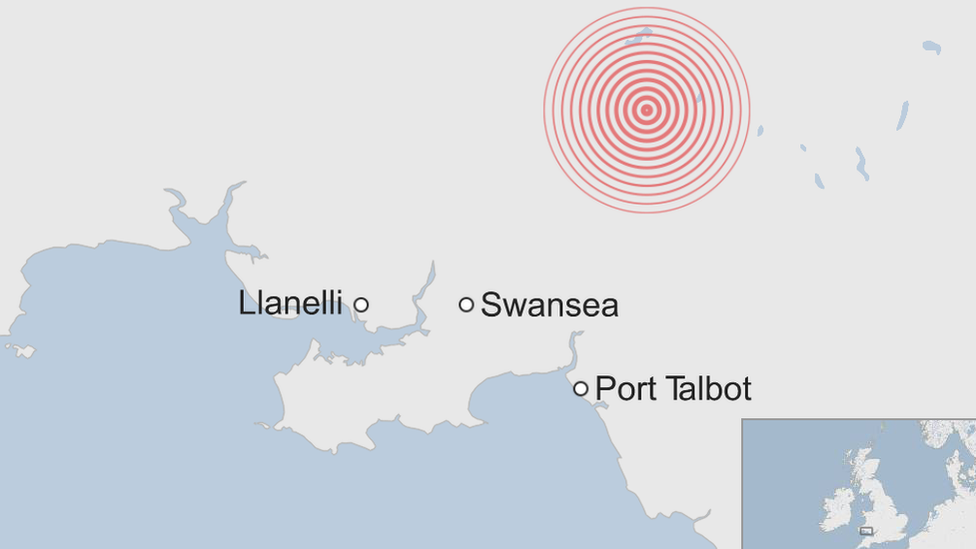
- Published29 May 2013
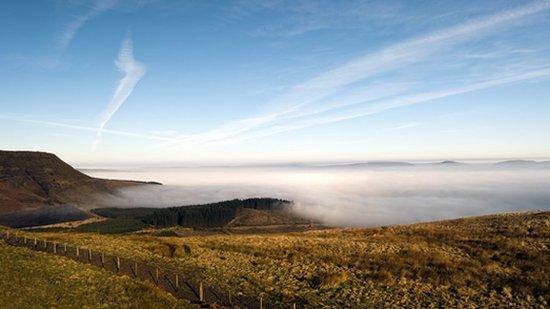
- Published29 May 2013
